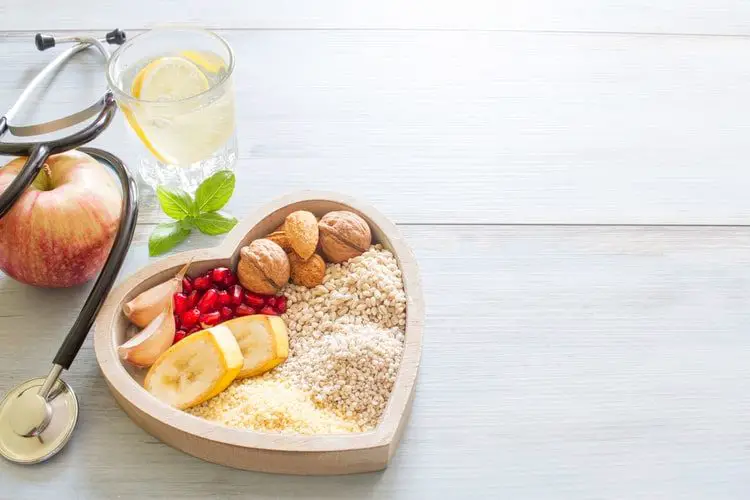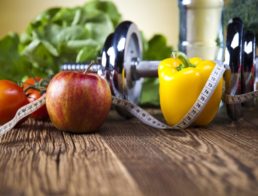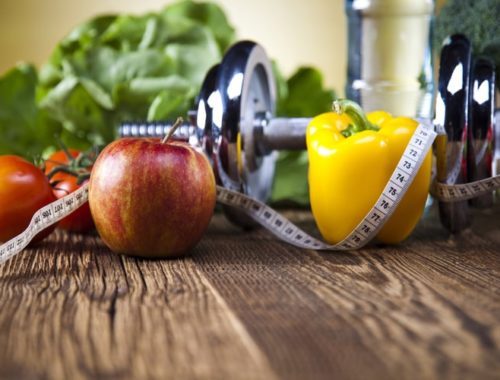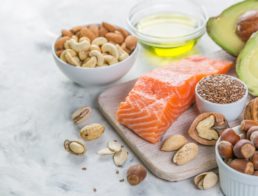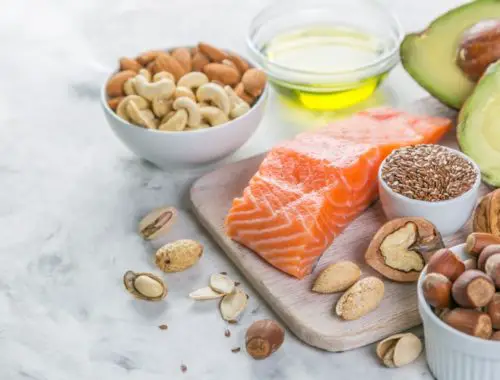You doctor may have told you that you need to lower your cholesterol, but how do you do that? In this article, we will discuss what cholesterol is and how to lower cholesterol naturally.
What is cholesterol?
Cholesterol is a waxy substance that your body uses for hormone production, digestion and vitamin D synthesis. Our bodies make cholesterol, but we also get cholesterol in mainly animal-based foods (i.e. eggs, meat, dairy).
There are various types of cholesterol, and having too much or too little of each type can increase your risk for coronary artery disease (1). You can check your cholesterol via a blood test. A basic cholesterol blood test will show the following:
- Total cholesterol
- LDL “bad” cholesterol
- HDL “good” cholesterol
Optimal cholesterol numbers vary by age and gender, so ask your doctor where your cholesterol should be.
How to Lower Cholesterol Naturally
In general, you want to decrease the LDL “bad” cholesterol and increase the HDL “good” cholesterol for better heart health. Here are our cholesterol tips for improving your health:
Tip #1: Lose weight for better labs
Weight loss helps manage and prevent many conditions, but it also can yield better blood cholesterol numbers. Even a small amount of weight loss (5-10% of your current body weight) can help your labs! Need help with weight loss? Read our 2020 edition of how to make healthy lifestyle changes.
Tip #2: Eat less unhealthy fat (a.k.a. saturated fat).
Cholesterol is affected by how much unhealthy saturated fat you consume. Saturated fats increase bad cholesterol. In general, those who eat more unhealthy fats will have more of a problem with blood cholesterol. Here is a list of foods that contain a high amount of saturated fats:
- Full fat milk, yogurt, cheese
- Butter
- Beef
- Pork
- Processed meat (sausage, links, salami)
- Fried food
- Fast food
For better blood cholesterol, try to decrease the amount of these foods that you eat.
Tip #3: Eat less trans fats and partially hydrogenated oils.
When it comes to a healthy heart, reduce the amount of trans fats and partially hydrogenated oils that you eat. Trans fats and partially hydrogenated oils can raise your bad cholesterol and lead to plaque buildup in your arteries. Plus, trans fats decrease the good cholesterol that you want in your body.
Over the years, there have been improvements in trans fat regulations and how food manufacturers can produce their products. However, trans fats and partially hydrogenated oils have not been removed from our food supply. See the list below of foods that still contain trans fats and partially hydrogenated oil:
- Fried foods (i.e. doughnuts)
- Vegetable shortening
- Certain bakery products (i.e. cookies, pies)
- Certain spreads
Lots of these food items, especially bakery goods and fried foods, may not have a nutrition facts label to tell you that there are trans fats in them.
Important note (per the FDA): Don’t confuse “partially hydrogenated oils” with “hydrogenated oils.” Hydrogenated oils actually contain minimal trans fats compared to partially hydrogenated oils.
Tip #4: Eat more healthy fats (a.k.a. unsaturated fats).
We get heart-healthy unsaturated fat from many sources!
- Fatty fish like trout and salmon (see more information about fatty fish in Tip #5)
- Avocado and avocado oil (try this one here!)
- Olive oil
- Vegetable oil
- Sunflower oil
- Canola oil
- Nuts, seeds and nut butter
Unsaturated fat boosts your good HDL cholesterol. You may also see a drop in the bad LDL cholesterol when you replace unhealthy fat with healthy fat!
Tip #5: Eat more of the good acronyms ALA, EPA and DHA.
It’s like alphabet soup! There are important acronyms that you should remember for overall heart health: ALA, EPA and DHA. These are all types of omega-3 fatty acids, which are heart healthy (2).
Sources of Omega-3s (by type)
| ALA (alpha-linolenic acid) | EPA (eicosapentaenoic acid) and DHA (docosahexaenoic acid) |
|---|---|
| Flaxseed oil | Salmon |
| Walnuts | Herring |
| Soybean oil | Sardines |
| Nuts and seeds | Trout |
| Canola oil | Mackerel |
Recent research shows that EPA and DHA can improve heart health biomarkers (i.e. HDL cholesterol, triglycerides) as well as reduce oxidative stress (which helps decrease your risk of chronic diseases). However, the relationship between cholesterol, EPA and DHA is quite complex and not fully understood. There is also some research that focuses on ALA, however, more research is needed to narrow in on ALA’s specific role with cholesterol (3–4).
Tip #6: Eat enough fiber.
We get fiber from fruits, veggies, whole grains, nuts and seeds. Fiber helps you lower cholesterol by slowing the rate of food cholesterol that is absorbed in your digestive tract. Here’s a breakdown of that process:
- You eat food that contains cholesterol.
- In your digestive tract, fiber binds to cholesterol before it gets absorbed.
- Fiber helps move things along in the digestive tract. The fiber that binds with cholesterol moves the cholesterol and feces out of the body.
How much fiber do we need? Find out by reading our fiber article!
Tip #7: Eat more plant-based meals.
Plant-based meals tend to have less saturated fat and cholesterol than animal-based meals. They also tend to offer more fiber (which is helpful for bowel regularity and managing cholesterol). Furthermore, plant-based meals tend to offer a plethora of vitamins, minerals, antioxidants and phytochemicals (which can help reduce oxidative stress and improve immunity).
Tip #8: Go for garlic!
Many studies indicate that garlic may have positive effects on cardiovascular disease, blood cholesterol and atherosclerosis (5). Garlic contains vitamin C, manganese, vitamin B6 and selenium. It also contains sulfur compounds, which have been shown to play a role in anti-inflammatory processes. You can add garlic to nearly any savory meal for mega flavor. Out of all the types of garlic out there, I like to use this minced garlic in water.
Tip #9: Sip some tea.
There is emerging research to show that green and black tea may be good for your heart (5). Before you become a devout tea drinker for heart health, however, it is important to understand the drawbacks of tea research on heart health. The main problem across all tea-related studies is that there lacks consistency between what kind of tea is used on participants (i.e. regular brewed teas, supplements/powders). Lack of consistency can muddy the results. However, tea can be a great beverage in a healthy diet. Plain tea is a low-calorie beverage, which is helpful for weight loss. Try my favorite green tea!
Tip #10: Take your cholesterol medications as prescribed.
It’s normal to want to avoid taking medications. However, cholesterol medications can help you better manage cholesterol while you are making dietary and lifestyle changes. If your doctor wants you to take a cholesterol-lowering medication, take it as prescribed.
